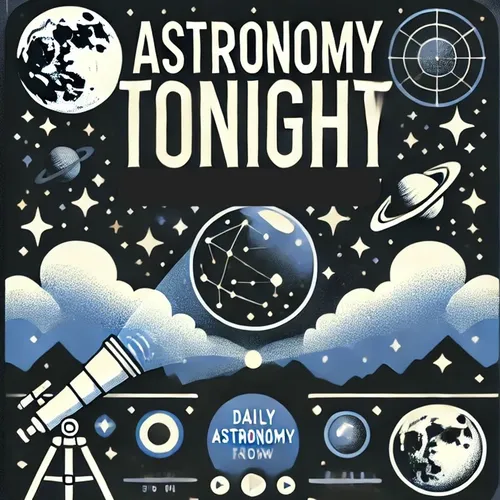Astronomy Tonight for - 11-01-2024
- Author
- Inception Point Ai
- Published
- Fri 01 Nov 2024
- Episode Link
- https://www.spreaker.com/episode/astronomy-tonight-for-11-01-2024--62580035
On November 1, 1977, a groundbreaking astronomical discovery was made that would forever change our understanding of the outer solar system. On this day, American astronomer Charles Kowal discovered Chiron, a celestial body that would later be classified as both an asteroid and a comet, earning it the nickname "centaur" after the mythological half-human, half-horse creatures.
Chiron, officially designated as 2060 Chiron, was spotted using the 48-inch Schmidt telescope at Palomar Observatory in California. At the time of its discovery, Chiron was the most distant known minor planet in the solar system, orbiting between Saturn and Uranus.
What makes Chiron particularly fascinating is its dual nature. Initially thought to be an asteroid, it later displayed comet-like behavior by developing a coma (a fuzzy atmosphere) as it approached the Sun. This revelation led to the creation of a new class of celestial objects called centaurs, which share characteristics of both asteroids and comets.
Chiron's discovery was a cosmic surprise party of sorts - imagine inviting what you thought was a quiet, rocky neighbor over for tea, only to find out they're actually a boisterous, icy reveler ready to spice up the solar system soirée! This celestial gatecrasher opened up a whole new area of study in planetary science and challenged our understanding of the composition and dynamics of the outer solar system.
The discovery of Chiron also sparked a renewed interest in searching for other objects in the outer solar system, ultimately leading to the discovery of the Kuiper Belt and numerous other centaurs. It's like Chiron was the cool kid who showed up at the cosmic party and suddenly everyone wanted to find more friends just like it!
So, on this day in 1977, astronomy got a little wilder, a little fuzzier, and a lot more interesting, all thanks to a small body with a big identity crisis orbiting quietly in the outer reaches of our solar system. Chiron's discovery reminds us that the universe is full of surprises, and sometimes the most intriguing celestial objects are the ones that don't quite fit into our neat categories.
This content was created in partnership and with the help of Artificial Intelligence AI
